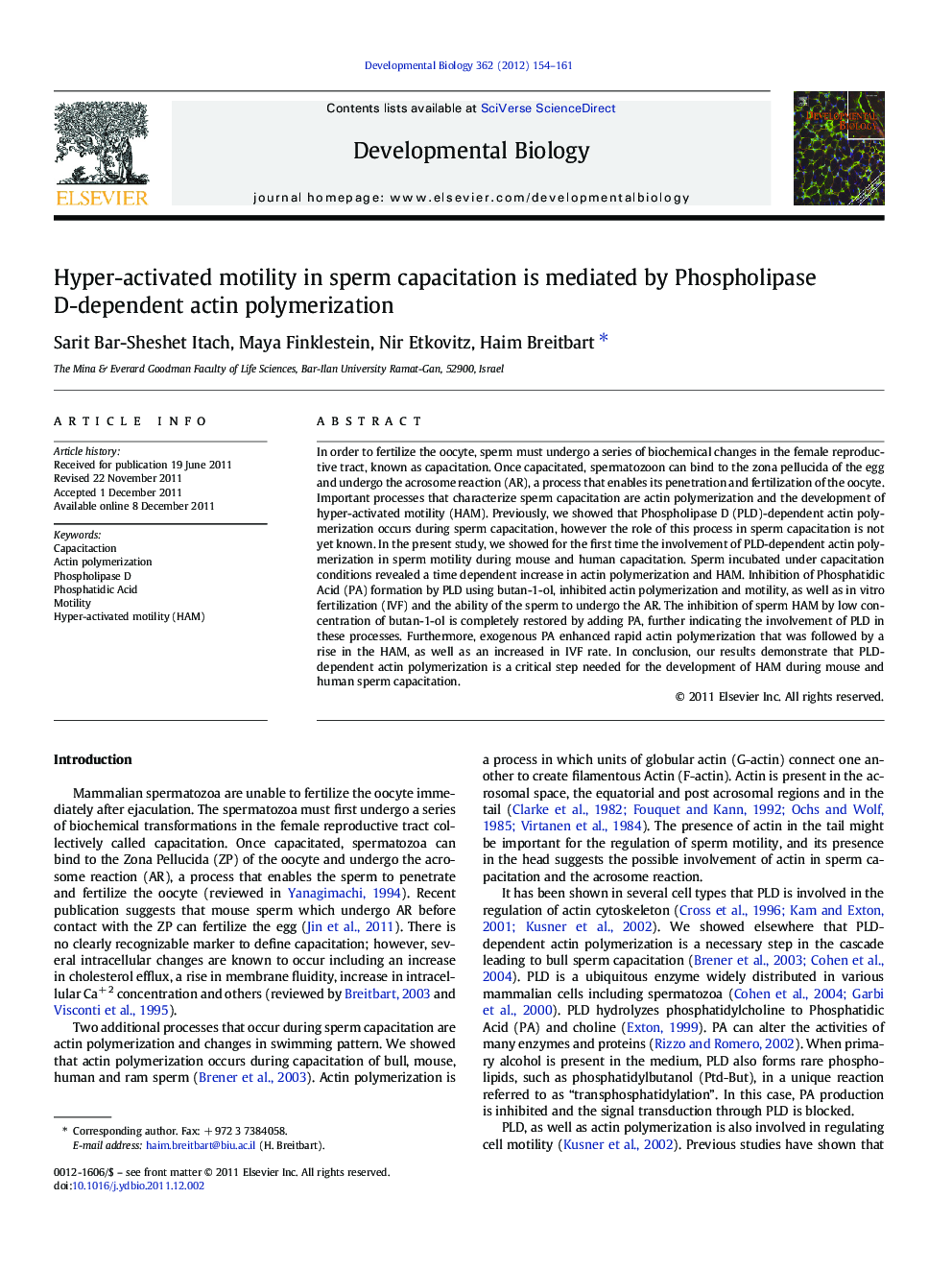| Article ID | Journal | Published Year | Pages | File Type |
|---|---|---|---|---|
| 2173419 | Developmental Biology | 2012 | 8 Pages |
In order to fertilize the oocyte, sperm must undergo a series of biochemical changes in the female reproductive tract, known as capacitation. Once capacitated, spermatozoon can bind to the zona pellucida of the egg and undergo the acrosome reaction (AR), a process that enables its penetration and fertilization of the oocyte. Important processes that characterize sperm capacitation are actin polymerization and the development of hyper-activated motility (HAM). Previously, we showed that Phospholipase D (PLD)-dependent actin polymerization occurs during sperm capacitation, however the role of this process in sperm capacitation is not yet known. In the present study, we showed for the first time the involvement of PLD-dependent actin polymerization in sperm motility during mouse and human capacitation. Sperm incubated under capacitation conditions revealed a time dependent increase in actin polymerization and HAM. Inhibition of Phosphatidic Acid (PA) formation by PLD using butan-1-ol, inhibited actin polymerization and motility, as well as in vitro fertilization (IVF) and the ability of the sperm to undergo the AR. The inhibition of sperm HAM by low concentration of butan-1-ol is completely restored by adding PA, further indicating the involvement of PLD in these processes. Furthermore, exogenous PA enhanced rapid actin polymerization that was followed by a rise in the HAM, as well as an increased in IVF rate. In conclusion, our results demonstrate that PLD-dependent actin polymerization is a critical step needed for the development of HAM during mouse and human sperm capacitation.
► We describe for the first time a role actin polymerization during sperm capacitation for the development of hyper-activated motility, a necessary step for fertilization. ► Moreover, actin polymerization and hyper-activated motility are both dependent on phospholipase D activation during sperm capacitation.
